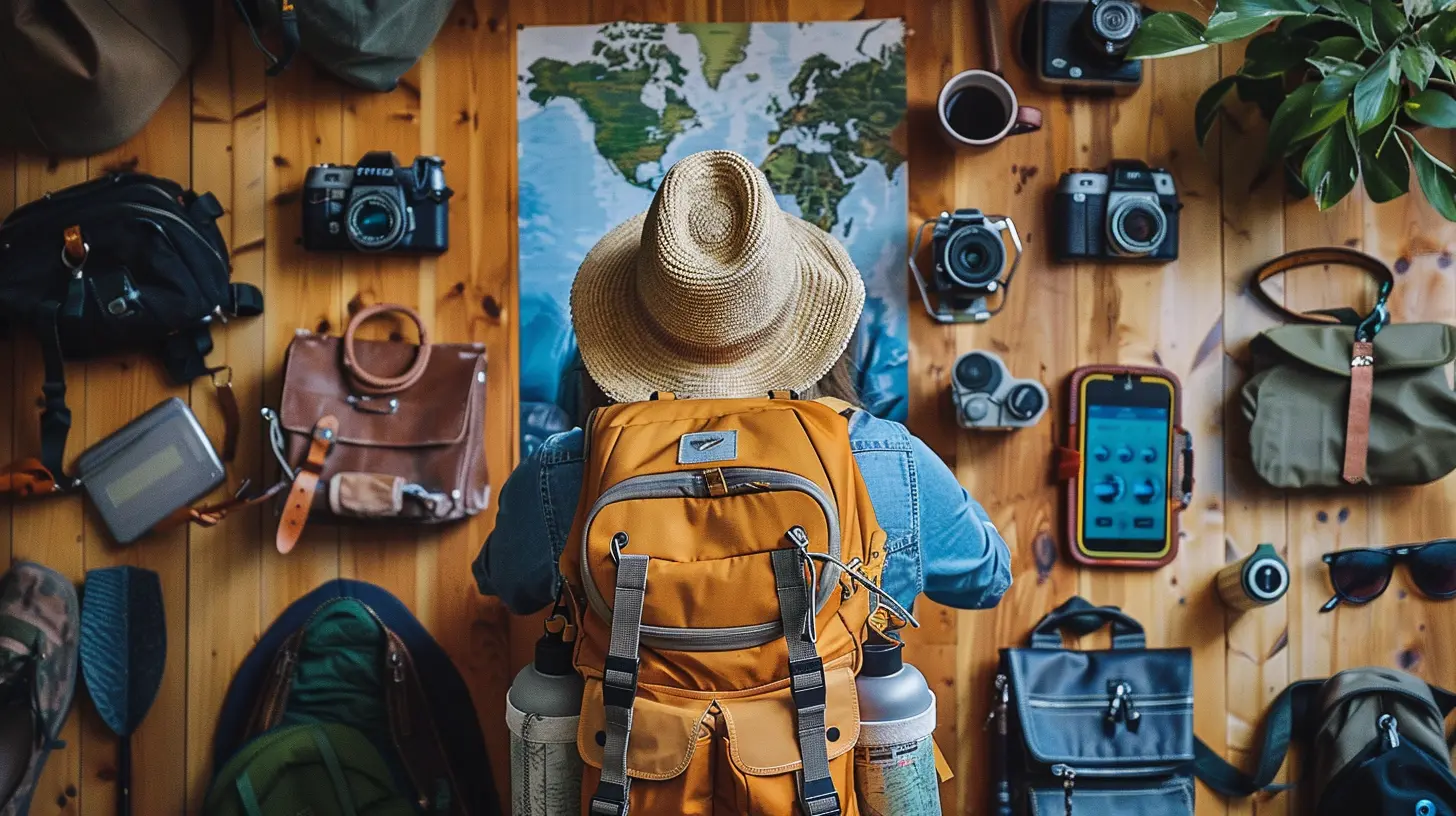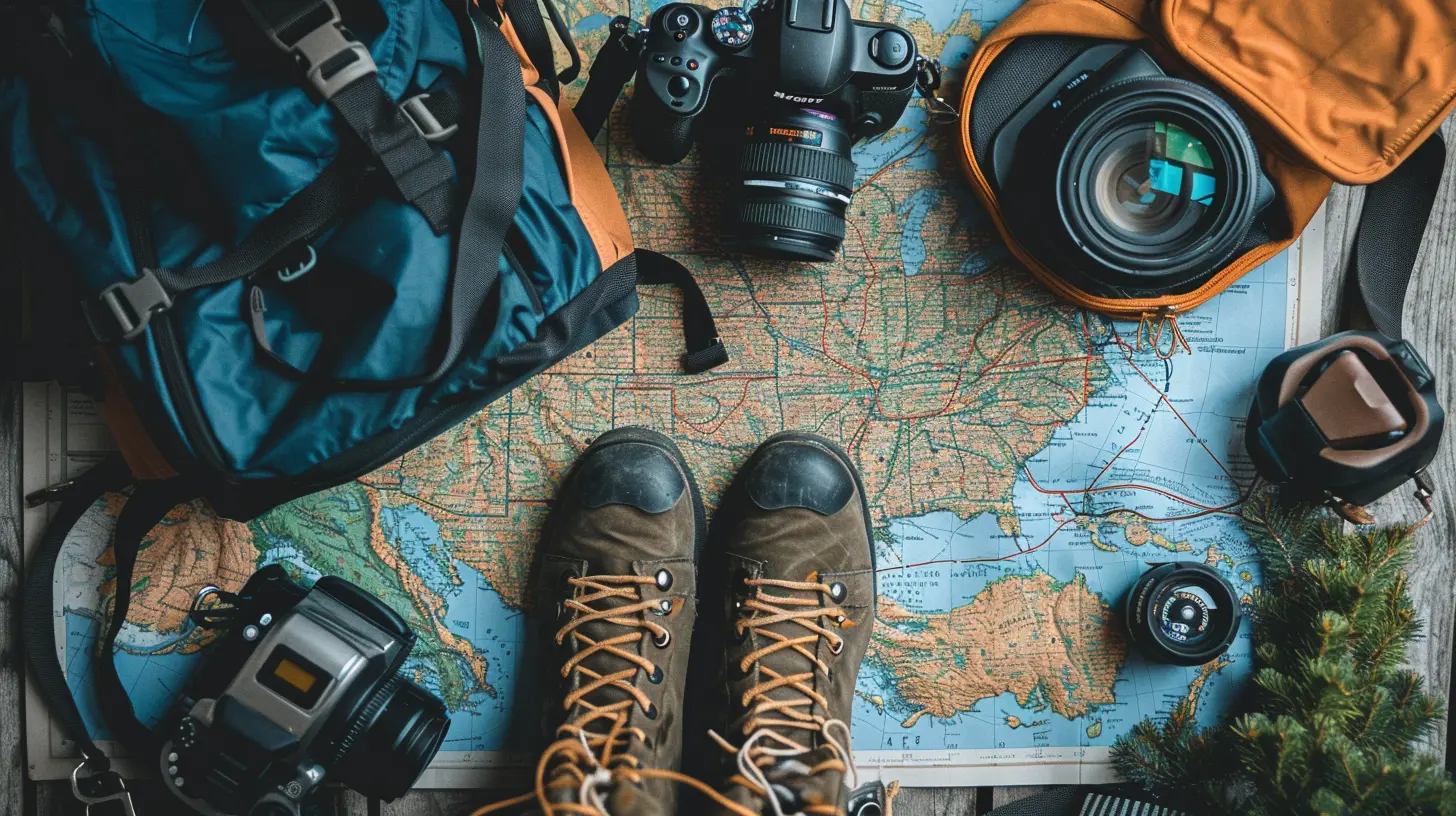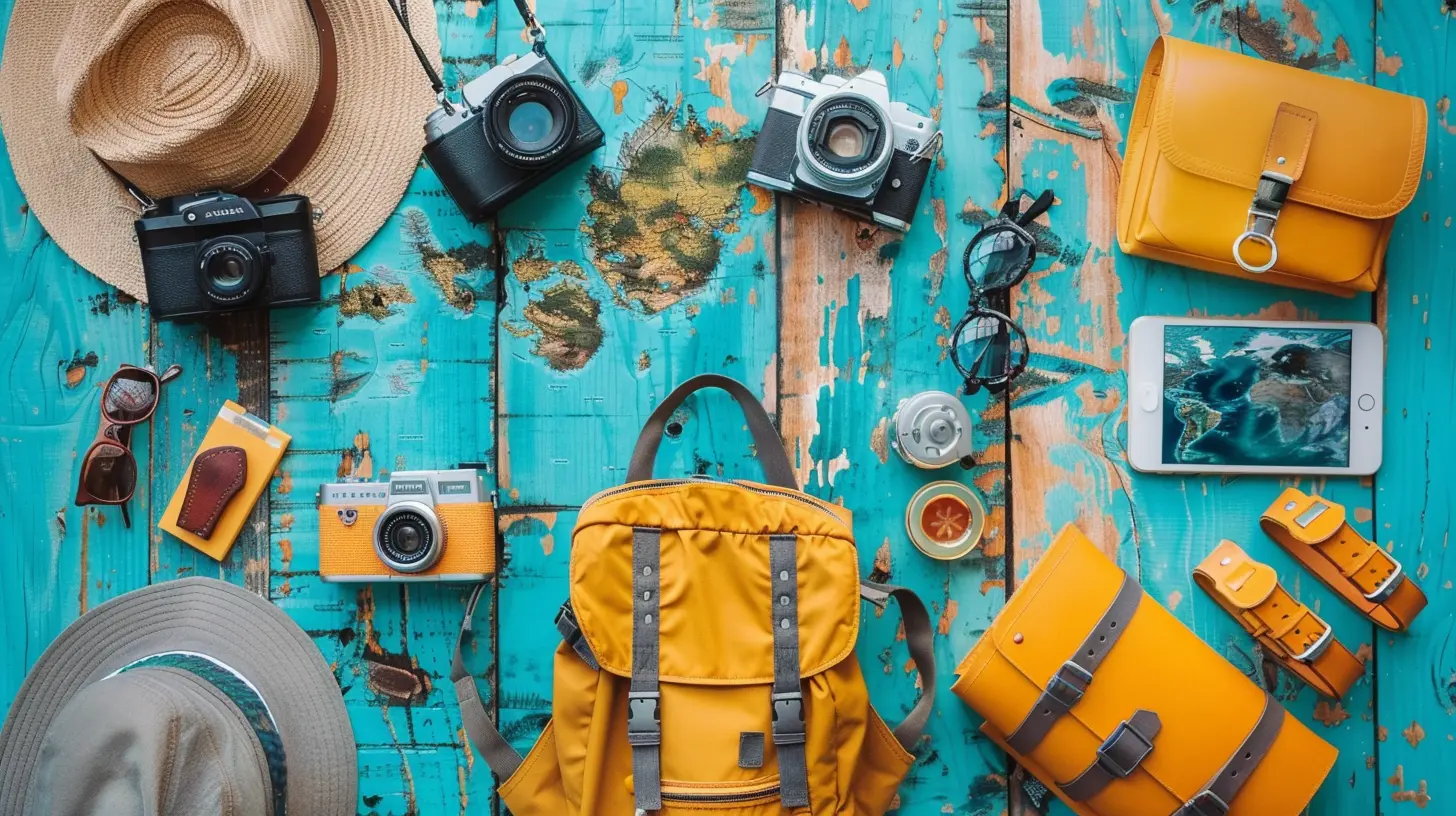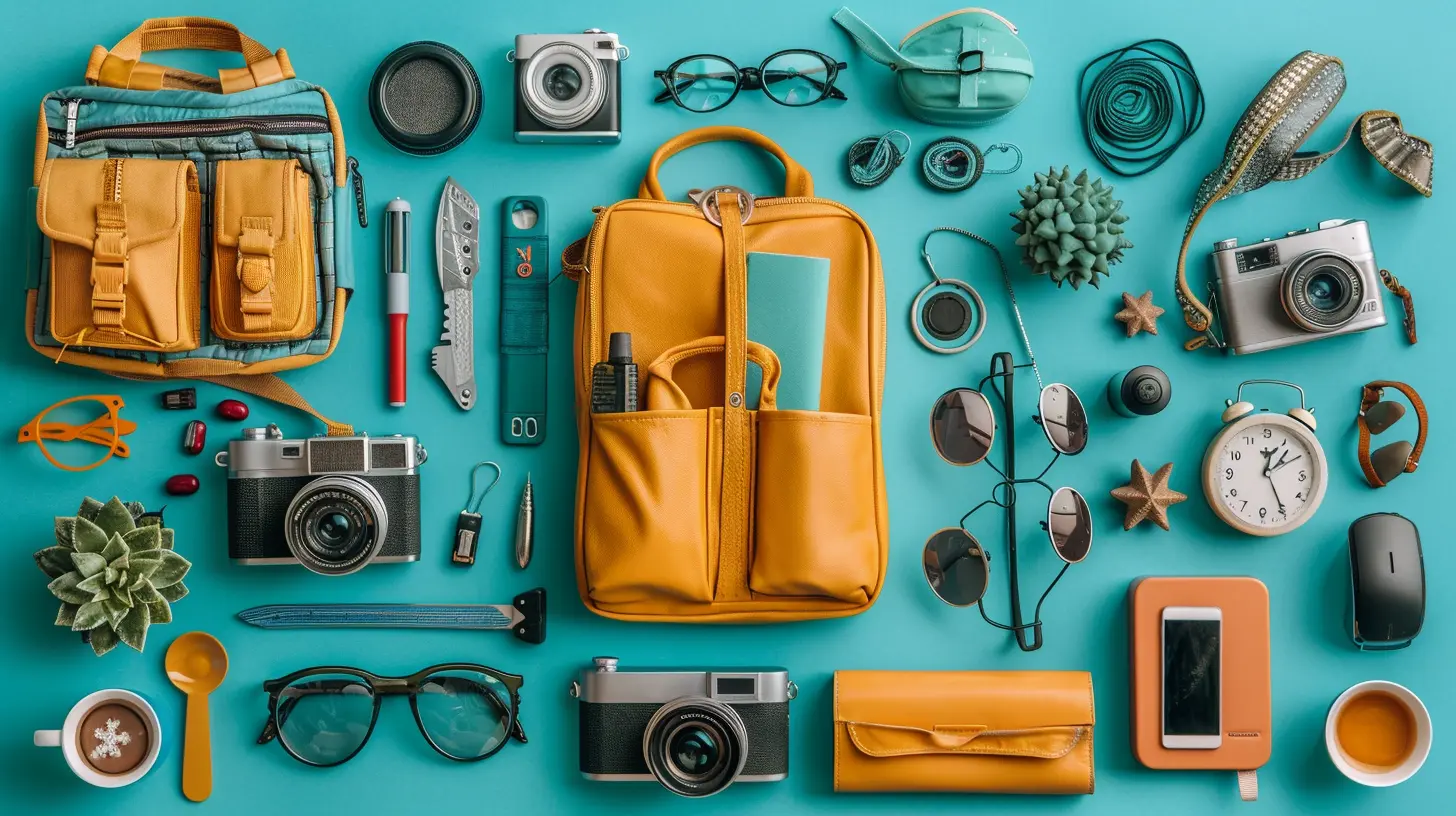How to Stay Safe While Traveling: Packing Safety Essentials
15 May 2025
Traveling is one of life’s greatest joys—new places, new people, and incredible experiences. But let’s be honest, things can go south quickly if you’re not prepared. Whether it’s losing your passport, getting pickpocketed, or falling sick, having the right travel safety essentials can make all the difference.
So, how do you pack smart and stay safe on your journey? Let’s break it down step by step. 
1. The Importance of Safety While Traveling
No one ever plans for things to go wrong on a trip, but unexpected situations happen. From minor inconveniences like a lost wallet to more serious emergencies like natural disasters or theft, being prepared reduces risks and stress.Packing the right safety essentials ensures you’re covered in case of emergencies. Think of it as carrying an umbrella—you might not need it, but you'll be glad you have it if it rains. 
2. Travel Documents & Money Safety
Losing important documents or money while traveling is a nightmare. Here’s how to keep them secure:a) Passport & ID Copies
Your passport is your most valuable document abroad. Keep it safe by:- Carrying a photocopy in your luggage.
- Storing a digital copy in your email or cloud storage.
- Using a passport holder with RFID protection to prevent digital theft.
b) Secure Your Money
It’s never a good idea to carry all your cash in one place. Instead:- Use a money belt or hidden pouch.
- Withdraw small amounts of cash at a time.
- Carry multiple payment options—credit card, debit card, and some emergency cash.
- Use travel wallets with RFID-blocking technology to prevent card skimming.
c) Emergency Contact List
Have a written emergency contact list, including:- Your country's embassy number.
- Local emergency services numbers.
- Trusted family or friends' contacts.

3. Health & First Aid Essentials
Staying healthy on the road is a priority. Pack a small first aid kit that includes:- Pain relievers (ibuprofen, aspirin).
- Band-aids, antiseptic wipes, and gauze.
- Prescription medications (with a doctor’s note if needed).
- Motion sickness pills if you’re prone to travel sickness.
- Hand sanitizer and disinfectant wipes to keep germs away.
a) Travel Insurance: A Must-Have
Never underestimate the importance of travel insurance. It covers:- Medical emergencies.
- Trip cancellations.
- Lost luggage or stolen items.
If you think you don’t need it—just imagine having to pay out of pocket for a hospital visit in a foreign country. Ouch! 
4. Personal Security & Anti-Theft Gear
Theft is one of the most common travel headaches. Travelers often become easy targets because thieves assume they’re distracted. Here’s what you need to stay one step ahead:a) Anti-Theft Bags
Invest in an anti-theft backpack with lockable zippers and slash-proof material. These bags make it way harder for pickpockets to steal your valuables.b) Door Alarm & Portable Lock
Staying in hotels, hostels, or Airbnb rentals? Carry a portable door lock and door alarm. They add an extra layer of security, especially in unfamiliar places.c) Whistle or Personal Alarm
A small, loud whistle or personal alarm can grab attention in case of danger. It’s a simple but effective safety tool.d) Flashlight or Headlamp
A compact flashlight or headlamp is useful for nighttime travel or power outages. Don’t rely only on your phone’s flashlight—it drains the battery fast.5. Digital Safety & Cybersecurity
In today’s world, digital theft is just as dangerous as physical theft. Here’s how to protect yourself:a) VPN for Secure Internet
Public Wi-Fi is a hacker’s playground. A VPN (Virtual Private Network) secures your internet connection, keeping your personal information safe from cybercriminals.b) Strong Passwords & Two-Factor Authentication
Use strong, unique passwords and enable two-factor authentication (2FA) for online accounts, especially for banking and emails.c) Backup Important Data
Keep digital backups of essential documents like your passport, itinerary, and emergency contacts. Store them in a secure cloud or USB drive.6. Safety Essentials for Solo Travelers
Traveling solo is an amazing experience but comes with additional risks. Here are a few extra safety measures:- Always share your itinerary with a trusted friend or family member.
- Avoid sharing your accommodation details with strangers.
- Stay in well-reviewed accommodations with good security.
- Trust your instincts—if something feels off, remove yourself from the situation.
7. Packing Tips for Safety Essentials
Now that we know what to bring, let’s talk about how to pack them.a) Use Packing Cubes for Organization
Packing cubes help separate essentials, making it easier to access them when needed.b) Keep Valuables in Carry-on Luggage
Never check in important items like your passport, money, or electronics. Keep them in your carry-on bag.c) Distribute Your Valuables
Spread out valuables between your backpack, suitcase, and pockets. That way, if you lose one, you don’t lose everything.8. What to Do in Case of an Emergency
Even with the best preparation, things can go wrong. If they do, stay calm and follow these steps:a) If Your Passport Gets Stolen
- Report it to the nearest police station immediately.- Contact your country’s embassy or consulate to get a replacement.
- Have digital and physical copies of your passport to speed up the process.
b) If You Get Robbed or Lose Your Wallet
- Cancel your credit/debit cards immediately.- Use emergency cash or contact someone for financial help.
- Report the incident to the local police for legal documentation.
c) If You Get Injured or Sick
- Seek medical attention right away.- Contact your travel insurance provider.
- Inform a trusted friend or family member about your condition.
Final Thoughts
Traveling is exciting, but safety should always be a top priority. Packing smart means packing safe. Whether you're heading on a weekend getaway or a month-long adventure, these safety essentials will help keep you secure and give you peace of mind.Remember, the best adventures happen when you’re prepared. So pack wisely, stay alert, and enjoy every moment of your journey!
all images in this post were generated using AI tools
Category:
Packing TipsAuthor:

Pierre McKinney
Discussion
rate this article
4 comments
Caelestis McGuffin
What a fantastic guide! Your tips on packing safety essentials are invaluable for travelers looking to explore the world with peace of mind. It's comforting to know that being prepared can enhance our adventures. Thank you for sharing such practical advice to keep us all safe! Happy travels!
June 14, 2025 at 3:52 AM

Pierre McKinney
Thank you for your kind words! I'm glad you found the tips helpful. Safe travels to you!
Valerie Oliver
Pack smart: secure essentials not just for style, but to keep your adventures worry-free and enjoyable!
May 23, 2025 at 3:07 AM

Pierre McKinney
Thank you for the reminder! Packing smart is key to ensuring a safe and enjoyable adventure.
Faelith Anderson
Pack your sense of adventure—safety is the ultimate souvenir!
May 20, 2025 at 2:35 PM

Pierre McKinney
Absolutely! Embracing adventure while prioritizing safety makes for the best travel experiences. Happy travels!
Lindsey Conrad
Traveling is all about adventure, but don’t forget your safety essentials! Packing a first aid kit, a portable charger, and your sense of humor can turn any mishap into a memorable story. Safety first, fun always—let the good times roll! 🌍✈️
May 19, 2025 at 3:20 AM

Pierre McKinney
Absolutely! Prioritizing safety with essentials like a first aid kit and a portable charger ensures that your adventures remain enjoyable and memorable. Happy travels! 🌍✈️



